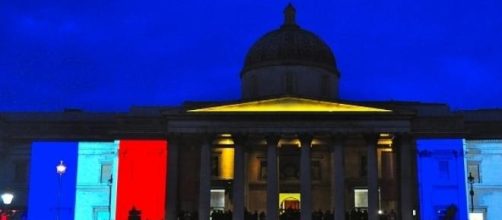It's unfortunate to have to focus on topics such as these, but in recent weeks, news headlines have been dominated by a single theme - Terrorism. Following the horrific Charlie Hebdo attack in Paris, Europe and the world have been on high alert for terror plots. While there is no doubt that governments and terror task forces around the globe are on a constant watch for potential threats, in the wake of such a barbaric act, the reality of the situation comes to the surface in all its clarity. The news is continuously flooded with stories about the current situation in the Middle East and the instability currently plaguing the region, not to mention the fear being instilled by a group such as ISIS. Yet, they remain articles that one reads about something happening far away from home and therefore, in some way, have less impact on the psyche of the reader. This certainly changed in a heartbeat on January 7, the Charlie Hebdo shootings instantly unified all of Europe against the threat of terror, and #JeSuisCharlie soon became one of the most used hashtags in social media history.
It may not be a fair comparison, but when London was hit by terrorist attacks on July 7, 2005, the reaction of the British people seemed relatively muted compared to the outpour of support that came following the recent Hebdo shootings. There is no doubt that social media has had an enormous role to play in this. Back in 2005, Facebook was still in its infancy, tweeting was associated to birds, not to mention the fact that the iPhone was yet to be created and that the internet was half the tool it is today. This resulted in far less exposure, there were few first hand photos, videos and accounts of the 7/7 attacks. Perhaps because of this, the overall feeling across the UK's capital back in 2005 was, to borrow a cliche, to simply keep calm and carry on. There is a reason why that statement is so closely associated to the British people, and that's because it is true to their mentality. The 2005 attacks were devastating in so many ways, but instead of showing the fear and panic that was certainly swirling inside most people's minds at the time, the British people chose to put on a strong face, and carry on. Londoners chose to distract themselves by worrying about things only Londoners worry about - will public transport be disrupted? Will it continue to rain during summer? That's not to say that the British neglected to mourn the victims of the attack, they, like all victims of terrorism, are remembered on a regular basis - the difference was that in the UK, the people chose not to bow down to the fear that those attacking the country were trying to instill.
Today, with the exposure that the internet and social media provides, the Paris attacks were certainly more real than any terror plot since 9/11. While the reaction in the UK was one of shock, it quickly turned to the defence of a core western value: freedom of speech. The country maintained its strength in adversity, this time lending a shoulder to its neighbour. Needless to say, France and Europe certainly took a page out of the UK's book and made sure that it would not bow down to fear, but that it would fight it by standing strong and uniting around its people and its values.
© ALL RIGHTS RESERVED

